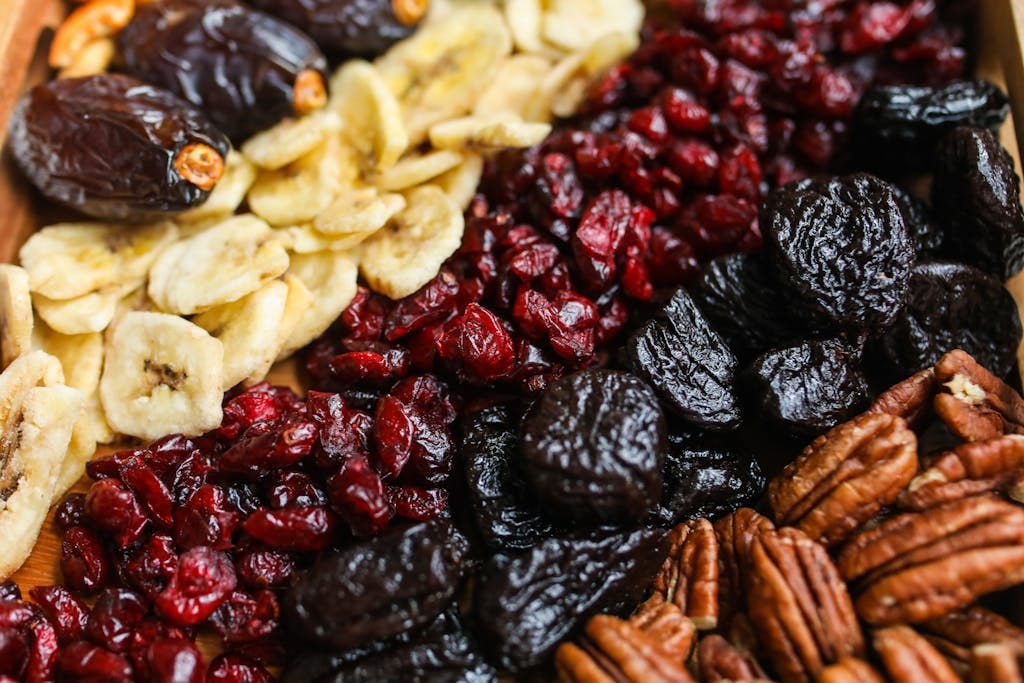FREE SHIPPING OVER $50
This One Fruit Is Basically Nature’s Best Laxative, Say Dietitians
Let’s face it—constipation is uncomfortable, bloating is frustrating, and relying on over-the-counter laxatives isn’t exactly ideal. But what if a single fruit could help get things moving naturally? According to dietitians, there is such a fruit, and chances are you’ve already seen it in your local grocery store. It’s sweet, easy to add to your meals, and most importantly—it works. We’re talking about prunes.
Yes, prunes. These humble dried plums are one of the most effective, natural ways to promote regular bowel movements. But before you write them off as “just for grandma,” let’s dive into why prunes are making a major comeback in digestive health—and how you can make the most of them.

Why Prunes Are Nature’s Laxative
Prunes are rich in both insoluble and soluble fiber, which helps bulk up your stool and keeps it moving through the digestive tract. But what really sets prunes apart is sorbitol, a natural sugar alcohol with a mild laxative effect. Sorbitol draws water into the colon, softening stool and easing its passage.
This dual-action fiber + sorbitol combo makes prunes one of the best fruits to relieve constipation without the harsh side effects of chemical laxatives. And unlike stimulant laxatives, prunes work with your digestive system instead of overriding it.
The Science-Backed Benefits of Prunes for Digestion
Several clinical studies support the use of prunes for regularity. In one 2011 study published in the journal Alimentary Pharmacology & Therapeutics, researchers found that people who ate prunes daily had better stool frequency and consistency than those who used psyllium fiber supplements.
Other benefits include:
- Improved gut motility
- Reduced bloating
- Increased stool frequency
- Less straining during bowel movements
That’s a big win for a tiny fruit.
More Than Just Regularity: Other Health Perks of Prunes
Sure, prunes help you poop, but they’re also loaded with other nutrients your body needs. A single serving (about 5-6 prunes) delivers:
- 3 grams of fiber
- Vitamin K and potassium
- Antioxidants like polyphenols
- Iron and magnesium
That makes prunes an excellent daily snack for supporting heart health, bone strength, and overall energy.
Common Myths About Prunes—Busted
There are a few misconceptions about prunes that hold people back from enjoying their benefits. Let’s clear them up:
Myth #1: They’re just for old people.
Truth: Prunes benefit people of all ages, especially those who sit a lot, eat low-fiber diets, or don’t drink enough water.
Myth #2: They taste weird.
Truth: When stored properly, prunes have a naturally sweet, rich flavor. You can also blend them into smoothies or chop them into oatmeal or salads.
Myth #3: They’ll make you run to the bathroom.
Truth: Prunes promote gentle regularity. Unless you eat an excessive amount, they won’t cause urgency or cramping.
How to Eat Prunes for Digestive Benefits
You don’t need to go overboard to see results. In fact, dietitians recommend starting with 4 to 6 prunes per day, especially if you’re new to fiber-rich foods.
Here are a few easy ways to add them to your routine:
- Morning boost: Chop a few prunes into your oatmeal or Greek yogurt for a fiber-rich start to your day.
- Snack time: Eat them solo or pair with almonds for a sweet and salty combo.
- Smoothie upgrade: Blend prunes with banana, almond milk, and a scoop of protein powder.
- Savory meals: Add chopped prunes to couscous, quinoa bowls, or roast them with root vegetables for natural sweetness.
- Dessert swap: Use pureed prunes as a sugar substitute in baked goods—they add moisture and fiber without added sugar.
When Prunes Aren’t Enough
If you’re dealing with chronic constipation or a digestive condition like IBS, prunes can be helpful, but they’re not a magic cure-all. In those cases, it’s smart to consult a registered dietitian or gastroenterologist. They may recommend a broader approach involving hydration, stress reduction, and other gut-friendly foods.
Still, for most people with mild to moderate constipation, prunes offer a safe, effective, and affordable way to improve gut health naturally.
What to Pair with Prunes for Maximum Effect
Want to supercharge your digestion? Combine prunes with these habits for even better results:
- Drink more water: Fiber needs water to work properly—aim for at least 8 cups a day.
- Move your body: Even light exercise helps stimulate digestion.
- Add variety: Include other high-fiber foods like chia seeds, leafy greens, and beans.
- Watch dairy and ultra-processed foods: These can slow things down if you’re not careful.
Conclusions
Prunes might not be flashy, but they’re a digestive powerhouse. Backed by science and beloved by dietitians, these dried fruits help keep your gut in balance without harsh side effects or complicated routines. So if you’ve been skipping prunes out of habit or misinformation, it might be time to give them another shot. Your gut (and your bathroom schedule) will thank you.
Ready to make prunes part of your daily routine? Start small, stay consistent, and enjoy the benefits of nature’s best laxative—no prescription required.
Related Articles
- Stop the Bloat: 5 Gut-Boosting Supplements That Actually Relieve Constipation, According to a GI Doctor
- Want Better Gut Health and More Protein? A Doctor Reveals the Surprisingly Simple Way to Get Both
- Protein vs. Strength Training: What Really Builds Muscle After 50, According to Science
- Stop Wasting Your Cash: A Pharmacist Says These 5 Supplements Do Nothing for Your Health
- No More Candy or Soda? These States Want to Rewrite the Food Stamps Rulebook







